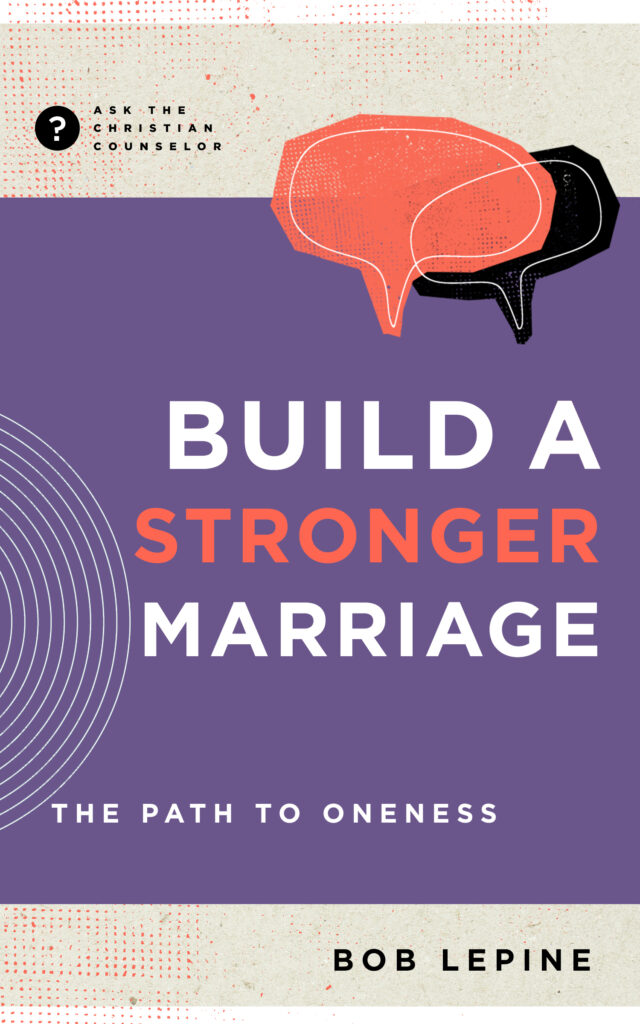Here’s a primer on the internal combustion engine. It’s the kind of engine most of us have in our cars. It’s what moves the car from place to place. The mixture of fuel and fire in the engine create a lot of heat and a lot of friction. That’s why your engine is continually bathed with oil. It keeps the friction from destroying the engine and bringing the car to a grinding halt.
Every marriage has elements that produce heat and friction. And unless your marriage is continually bathed with the oil of grace and the ability to forgive one another, you can expect your marriage to seize up, just like an engine that has no oil in the crankcase.
Ruth Bell Graham, the wife of noted evangelist Billy Graham, said once that a happy marriage is the union of two great forgivers.1 She’s right. There can be no oneness in marriage unless we learn how to forgive and ask for forgiveness.
No Other Option
For followers of Christ, forgiving others is nonnegotiable. It’s not optional. The prayer Jesus taught his disciples assumes they are practicing forgiveness: “forgive us our debts, as we also have forgiven our debtors” (Matthew 6:12). He went on to make it clear that it is characteristic for someone who has been forgiven by God to forgive others (Matthew 6:14–15).
And he’s not talking about a one-time act. When the disciples ask him how often they should forgive someone who has offended them, they pose the question this way: “Lord, how often will my brother sin against me, and I forgive him? As many as seven times?” Because the Jews saw the number seven as signifying completeness, the question was really “do I keep on completely forgiving someone who sins against me?” Jesus’s response drives home the point about the significance of being ready to forgive another person. “I do not say to you seven times,” Jesus said, “but seventy-seven times” (Matthew 18:21–22).
Don’t just forgive completely. Forgive completely, then do it again. And again. And again.
Do you find yourself hesitant to extend forgiveness? I get that. You may be thinking that granting forgiveness means that your spouse is now free to repeat the same behavior. You’re thinking you’ve given him or her a get-out-of-jail-free card. Unless there is some kind of punishment that stings, you reason, your spouse will think, I got away with it that time, and will be likely to repeat the offense.
Putting God’s Word into Action
So what do we do with Jesus’s words about forgiving over and over again? Ignore them? Withhold forgiveness until we’re convinced our spouse is really, really sorry?
I propose that the solution here is for us to think a little more carefully about the whole subject of forgiveness. We need to look closely at what the Bible says about the right way to seek forgiveness when we have sinned against our spouse and about the right way for us to extend forgiveness when we’ve been sinned against.
The Bible has a lot to say about forgiveness—more than we can look at here. But when we add it all up, we find that forgiveness is a core theme in Scripture. The message of the gospel is that God has graciously chosen to forgive stubborn, stiff-necked, rebellious men and women like you and me. We are never more like Jesus than when we choose to forgive someone who has wronged us.
Seeking Forgiveness Is a Process
For now, let’s talk about the right way to seek forgiveness when we’ve messed up.
Seeking forgiveness is a two-step process that centers on confession.
Confession occurs privately first. Before you confess to the person you’ve offended or wronged, you confess to yourself and to God. You own the weight of what you’ve done. And you agree with God that your actions or attitudes have been wrong and are an offense to him.
Confession doesn’t end once you’ve gone to God. You have to go to your spouse to seek his or her forgiveness. You take responsibility for your actions. You don’t shift the blame to someone else. You don’t make excuses. You don’t minimize your mistakes. Confession sounds like this: “I did it; it was wrong. I’m to blame, and I’m sorry. Will you forgive me?”
You make sure you’ve not just cobbled together the right words so you can get back in your spouse’s good graces. A half-baked confession is no confession at all. Saying something you don’t really mean or don’t really believe is true just to get your spouse off your back is manipulative and dishonest. It’s like duct tape. It may patch things up temporarily, but it’s not a fix. It doesn’t bring oneness.
Ultimately, confession involves asking your spouse to give you what you acknowledge you don’t deserve: grace and forgiveness.
In the 2008 movie Fireproof, the lead character, Caleb, begins to see how he has sinned against his wife, Catherine. He has no idea whether his marriage can be salvaged. But he reaches a point where he realizes that he needs to ask her forgiveness for how he has wounded her. Here’s what he says: “Catherine . . . I need you to understand something. I am sorry. I have been so selfish. For the past seven years, I have trampled on you with my words and with my actions. I have loved other things when I should have loved you. In the last few weeks God has given me a love for you that l had never had before. And I have asked him to forgive me. And I am hoping, I am praying that somehow you would be able to forgive me too.”2
What’s significant about that confession is what’s not in it. There is no blame shifting. No excusing the sin. No “I’m sorry if . . .” or “I’m sorry, but . . .” Caleb doesn’t bring up how Catherine has sinned against him. It’s a straightforward, clear, clean owning up to what he’s done wrong and a humble request for grace.
That kind of confession is essential. But if you’re really going to seek another person’s forgiveness, you need to do more than admit your failings; you need to make it clear that going forward your intent is to change—to not repeat the sinful patterns. In a word, you need to not just confess but to repent.
Repentance means turning around and heading in a different direction. Whereas confession is admitting that what you did in the past was wrong, repentance is declaring your intention to make different choices going forward. When you confess, you’re saying, “I’m sorry. I was wrong. Will you forgive me?” When you repent, you’re saying, “I will make it my aim to not do again what I did that was hurtful or harsh. I will do all I can to make a different choice next time.”
When you become aware that you have wronged your spouse, you have a responsibility to confess and repent—to “seek peace and pursue it” (Psalm 34:14).
Practical Steps for Real Change
Are you aware of specific ways you have sinned against your spouse? Things you’ve said? Done? If someone asked your spouse for a list of ways you’ve hurt him or her, what would be on that list? And before you dismiss any of it with a “she’s overreacting” or “it was his fault too,” ask God to help you see clearly the things that you need to own, regardless of any other factors at play.
Make a list of the specific sins. Confess them to God as sins not only against your spouse but against him as well. Read Psalm 51, where David prays a prayer of confession after having committed adultery. Notice how he prays to God, “Against you, you only, have I sinned and done what is evil in your sight” (v. 4).
Now find a time when you can get with your spouse and confess to him or her. If you’re going to be confessing sins that your spouse is currently unaware of, realize that you are going to be opening a wound that may take time to heal. Seek counsel ahead of time. Pray. Make sure your heart is humble, broken, and contrite. Don’t become defensive or make excuses. Own your sin. And ask your spouse to forgive you.
1. Ruth Bell Graham and Gigi Graham Tchividjian, A Quiet Knowing (Nashville, TN: Thomas Nelson, 2001), 42.
2. Fireproof, movie directed by Alex Kendrick, produced by Alex and Stephen Kendrick and David Nixon (United States: Sherwood Pictures, 2008).
Excerpted from Build a Stronger Marriage: The Path to Oneness © 2022 by Bob Lepine. Used with permission of New Growth Press. May not be reproduced without prior written permission.
Build a Stronger Marriage: the Path to Oneness
All marriages face seasons of distress and frustration—times when thanks to a variety of factors you don’t feel as close as you once were. Bestselling author and longtime FamilyLife Today cohost Bob Lepine helps you work through the challenges that emerge in every marriage, causing couples to become isolated and alienated.






